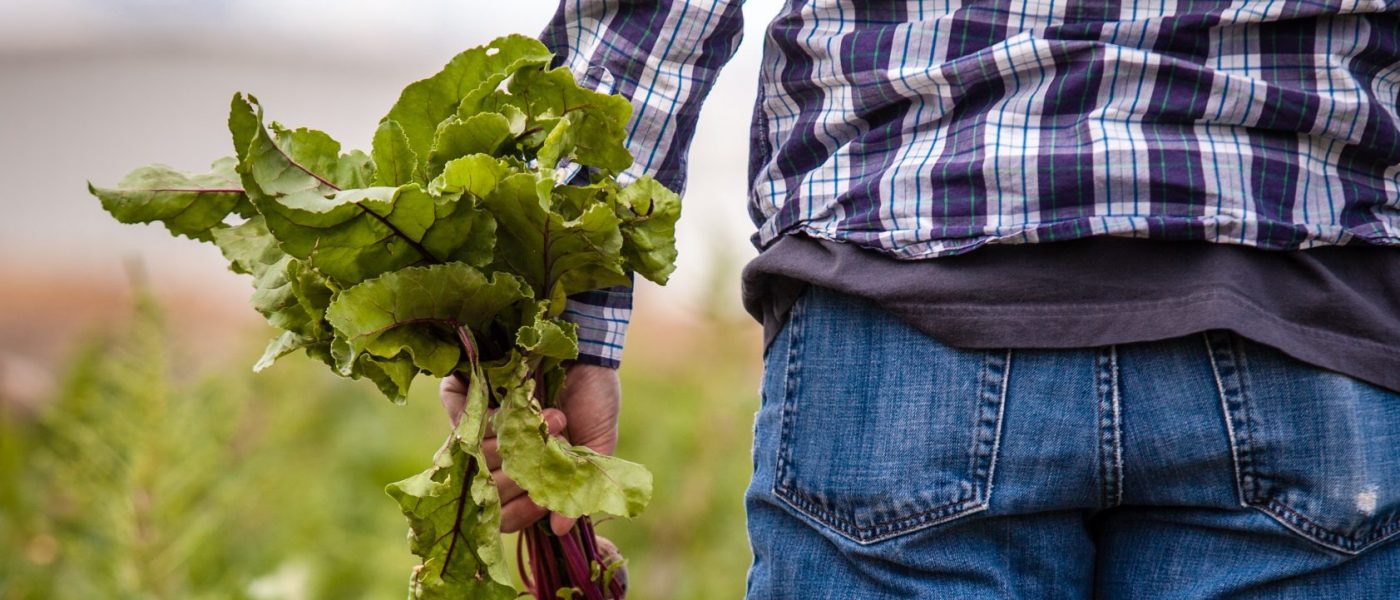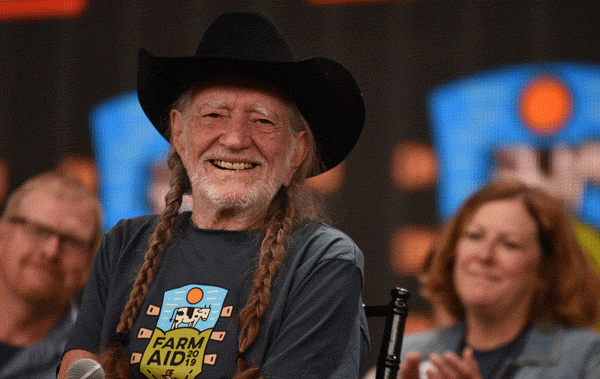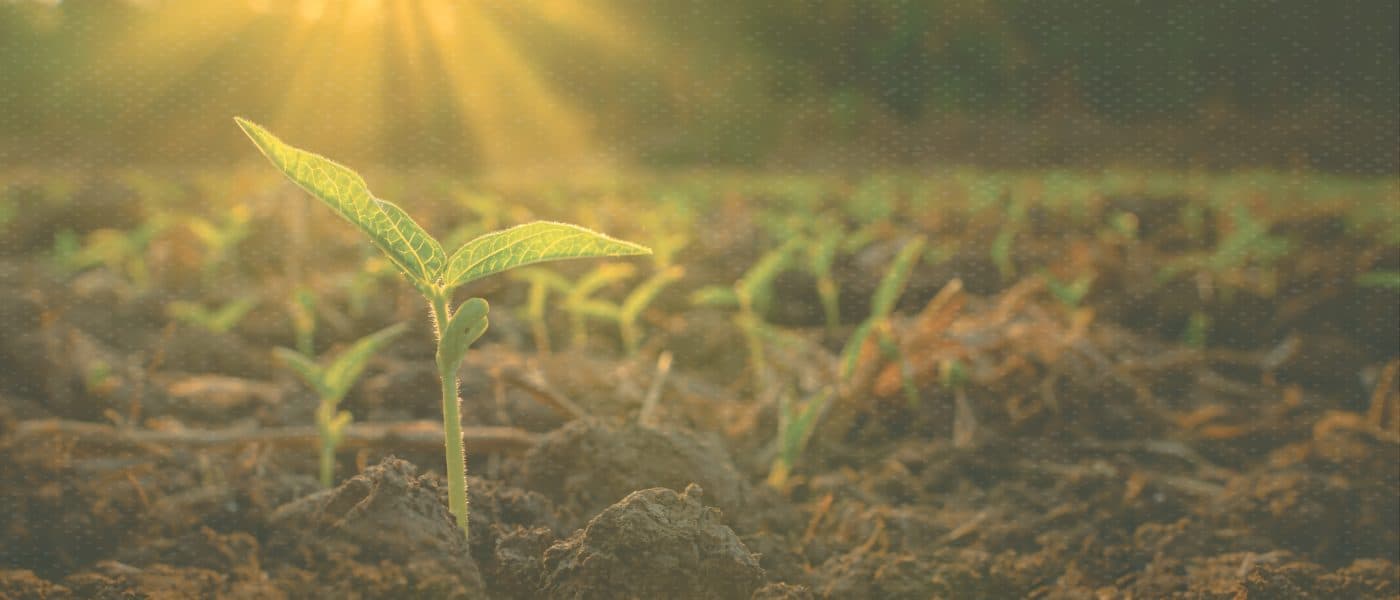When I reflect on the last year, I think about the challenges family farmers have faced and the long days they’ve worked to bring us the good food we need. As you may know, family farm agriculture remains at extreme risk. Farm income is about half what it was in 2013 and the number of farms in this country has fallen to its lowest number ever. Corporate consolidation, bad policy decisions and the effects of climate change like the devastating flooding we saw across the Midwest last spring are taking a real toll on our farm communities.
It would be easy for me to write about all the obstacles farmers are up against. But instead, I want to tell you about some of the stories of strength and determination we heard from family farmers at Farm Aid 2019 in Wisconsin. I want to share what they’re doing and why it makes me hopeful. Because we’re not giving up and we know you won’t either – not when there’s so much at stake.
At our press event on the morning of the festival, we showcased a group of determined dairy farmers who started a movement called Dairy Together. They’re mobilizing folks around the country to build power and propose real solutions to fix our broken dairy system. One of those people is Sarah Lloyd of Nelson Family Dairy Farm in Wisconsin Dells, Wisconsin. Sarah’s working with fellow dairy farmers to push for a way to better manage milk production. “Dairy farmers are not getting paid a fair price,” she said. “We’re calling for supply management because we know that the only real way for us to get our prices to come up is for all of us to work together.”
Like Sarah, we’re determined to make a difference for family farmers, but we need your support to continue this critical work. Your gift keeps Farm Aid strong, so that we’ll be there for farmers when they need us most.
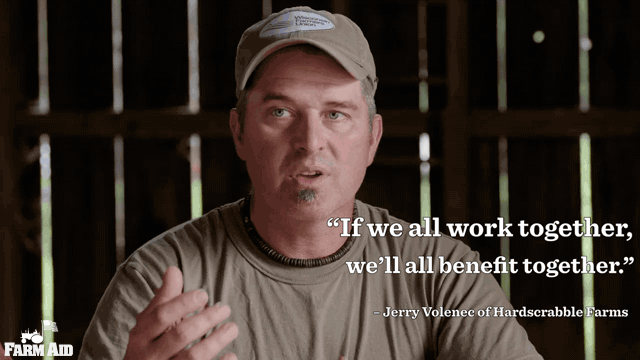
For many, being connected to the land and growing food is about continuing the cultural traditions of their ancestors. Toni House and Laura Manthe of the Oneida Nation in Wisconsin told us about their effort to cultivate white corn, which is important both for sustenance and for use in Oneida ceremonies. By teaching the next generation how to grow white corn, they’re making sure their foodways can never be lost or taken again. “When you don’t have land to grow food, you can’t carry on your culture and you can’t carry on your traditions. Everything goes back to the relationship that you have with the land,” said Laura.
Outside Milwaukee at the Fondy Farm Project, director Stephen Petro described how its members learn to carry on their cultural traditions through the food they grow. “We make space for the next generation of farmers because if we don’t, we run the risk of not having farmers,” he said. More than 90% of Fondy’s farmers are Hmong-American immigrants who grow produce you just can’t find at a typical grocery store.
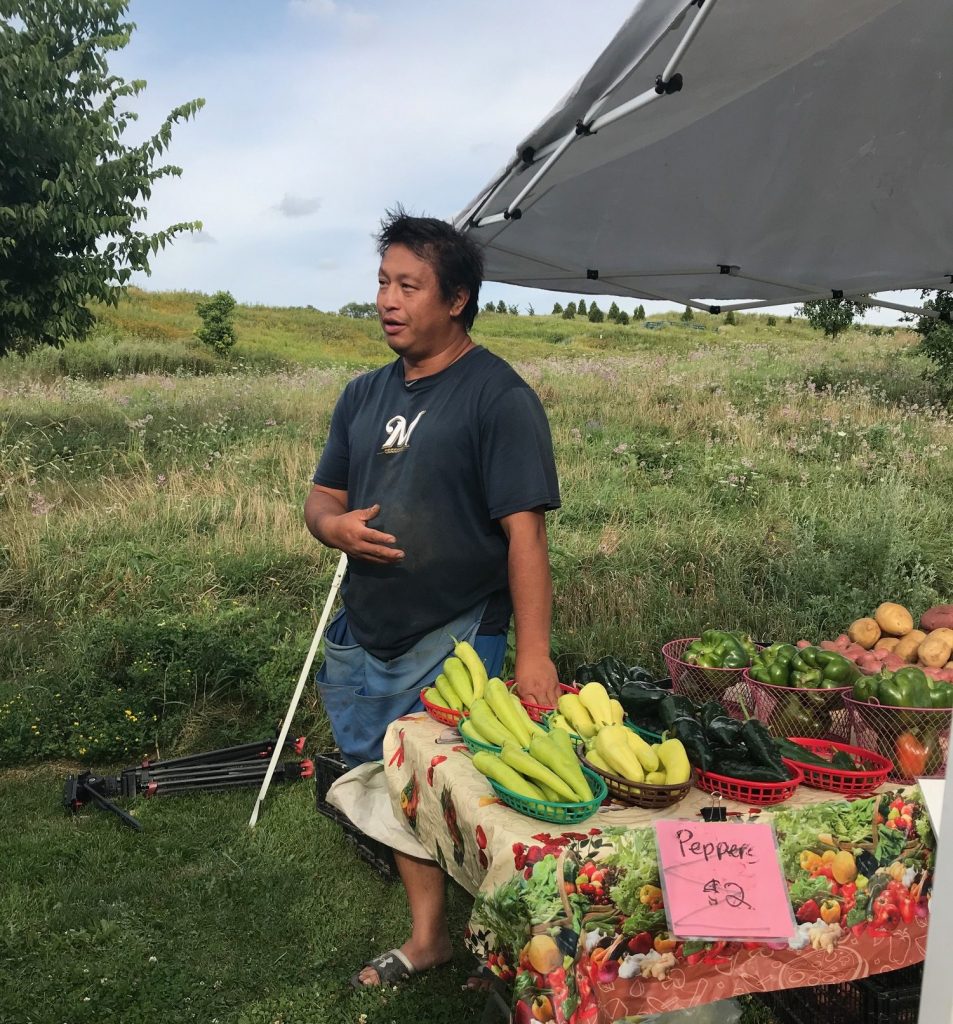
“We exchange ideas. We exchange a better way to farm.” – Vang Lee of Fondy Farm, Mequon Nature Preserve, Mequon, WI. Photo © Jennifer Fahy
Vang Lee is one of the Fondy Farm Project’s growers. He farms with his mother to continue the tradition her parents carried on before them. Vang believes that the act of growing food gives us an appreciation for the gifts of our soil and water. It also provides important lessons about working hard. “I want to teach my kids how to farm so they have the knowledge of what farming is about. Then they can learn how to appreciate the food they eat and the farmers that work every day for it,” he says. “Hopefully, we can encourage younger generations to farm as well.”
Bert and Trish Paris of Paris Family Farm in Belleville, Wisconsin, are at the forefront of regenerative agriculture. They raise their dairy cows on pasture and farm in ways that nourish soil health to stop climate change. “When we started, there was just a handful of people in this state that were grazing. I depended on other farmers who were starting at the time,” said Bert. “Grazing our cows has helped us survive and now has helped our daughter make the decision to join the farm. How great is that?” Trish said proudly.
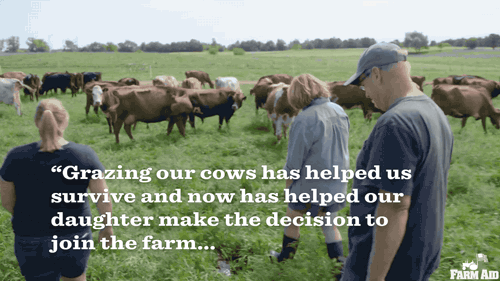
For the Paris family, “regenerative” doesn’t just refer to sustainable soil practices. It means passing the farm – and those practices – from one generation to the next. Their daughter Meaghan told us: “The farm makes me excited to know that one, I can raise my kids here, and two, I can also do something that I love that fills me with joy.” Her father Bert is proud to mentor her and adds, “We can be part of the solution to climate change rather than the cause.”
Dave Dolan of Dolan Farms in Dodgeville, Wisconsin, is part of the Artisan Grain Collaborative. The collaborative connects grain farmers, local millers, bakers and eaters to bring back local grain production. Their members know that working together means more to the places they live than just good soil health. By helping family farmers find ways to market and distribute what they produce, they’re creating economic health within their communities. As Dave said, “The majority of money that I make is spent locally, so it’s nice to see my grains sold in the community that I’m a part of.”
That’s what Farm Aid is all about: bringing together determined people who are fighting for family farm agriculture.
As we heard in Wisconsin, when we support family farmers we all benefit – our climate, our communities, our families, and ourselves. My friend and Farm Aid co-founder Neil Young says supporting agriculture puts us in harmony with the world around us. He’s right. And that’s what Farm Aid is all about: bringing together determined people who are fighting for family farm agriculture. When we do that, we help one another. Won’t you join me in this mission?
Stay Strong and Positive,

